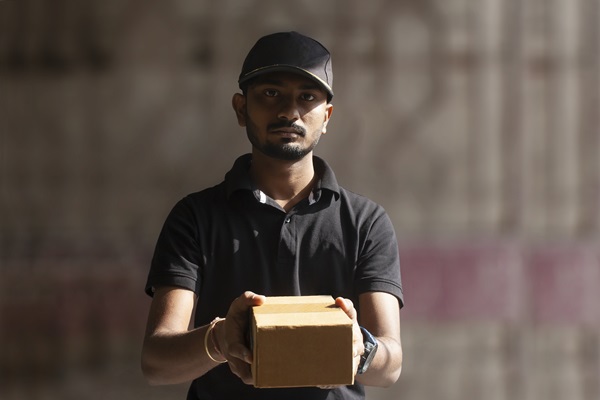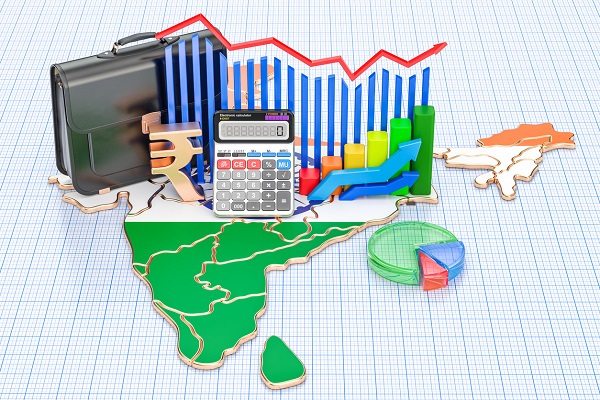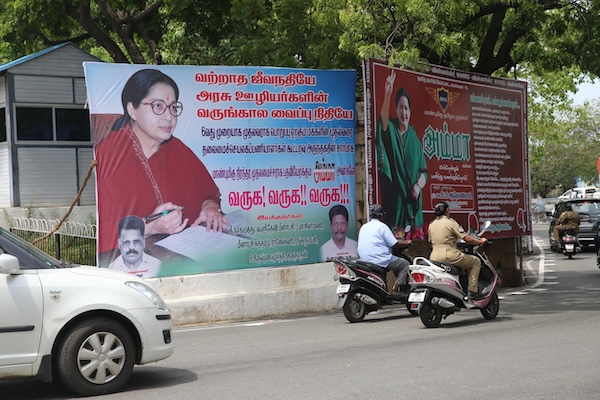.png)
Fast, Fatal, and Forgettable: The Deadly Price Of McDonaldised Delivery
A young rider died delivering food fast. The real culprit? A system wired for speed, not safety. We’re trading lives for convenience.

May 11, 2025 at 9:13 AM IST
A 26-year-old man died last week on a city road. He wasn’t a celebrity or a politician. Just another face behind the tinted visor of a two-wheeler, racing against time: the ubiquitous delivery rider, one of the invisible army rushing against time, hunger, and traffic to bring us our cravings on demand.
He was on his way to deliver food, the kind we order without thinking, with thumbs and impulses: greasy, packaged, indulgent. His wedding was just around the corner. Life was beginning. But he died; the police said, "Riding on the wrong side." Case closed?
No mention of the real forces that killed him: an app that pings and pressures, a rating system that punishes pause, a customer who wants it hot, now. We mourned briefly — and then tapped “Order Again.”
Welcome to the age of instant everything. Our food arrives in minutes. Movies start with a click. Replies must be immediate. Waiting is weakness. We are a generation conditioned to tap, scroll, consume but not to reflect, question, or care. Human patience is obsolete.
So is empathy.
In this new era, we’ve outsourced everything, even hunger. But what we’ve lost in the trade is far more valuable — the human cost behind the speed. The boy on the bike is no longer a person, but a tracking icon on a screen. A life in motion, reduced to estimated time of arrival.
We say we’re busier than ever, but mostly we’re just more entitled. We demand junk food faster than we ever asked for home-cooked meals. We don’t even want good — we want now. Saltier, crispier, deeper-fried — but instant. Quality sacrificed at the altar of speed.
And when someone dies to meet that deadline?
The company tweets its sorrow. The customer maybe tells a friend, “It’s terrible what happened,” while chewing on fries. And another delivery rider logs in for the next shift, because the algorithm doesn’t mourn.
Justice is slow. That’s its nature. But we don’t like slow anymore. So justice, too, becomes an afterthought — an outdated app we don’t update.
This wasn’t an accident. This was a consequence. Of a system that commodifies time, glorifies urgency, and accepts death as a rounding error in quarterly growth. The human soul wasn’t designed for this velocity. But we’ve upgraded ourselves — faster, hungrier, colder.
If this were satire, it might end with a promotional tagline: “Fast. Fatal. Forgettable. Your junk food’s still hot.”
But it’s not satire. This is where we are.
This tragedy isn’t just about one company. It’s about a system. A system that sociologist George Ritzer called the McDonaldization of society — a process where the principles of fast-food chains have come to dominate more and more sectors of our lives.
Efficiency
We are obsessed with speed. From 30-minute pizzas to 10-minute groceries, we’ve replaced patience with performance metrics. Companies promise delivery faster than digestion. Riders race through traffic like time bombs — not to save lives, but to serve samosas.
But what looks like efficiency for the customer is chaos for the rider. A route calculated by GPS, not by safety. A life governed by ETAs, not by ethics.
Calculability
In the McDonaldized world, quantity replaces quality. We don’t just want food — we want it fast, and we want it now. Five deliveries in an hour is better than one delivered safely. Bonus structures, penalties, and ratings all reduce human labour to data points.
One rider dead? A statistical anomaly. Orders delivered on time? Success.
Predictability
Every order must feel the same. The packaging is uniform. The delivery process scripted. The customer experience consistent. But behind the curtain, there’s nothing predictable about the traffic, the weather, or the stress of a gig worker who hasn’t eaten since morning and still has four orders left.
Ritzer warned that predictability for the consumer often comes at the cost of unpredictability — and instability — for the worker.
Algorithm Nodes
Riders are no longer workers in the traditional sense. They are nodes in an algorithm. Their routes, breaks, and even incomes are controlled by apps. No boss to appeal to, just an interface that demands more, faster, cheaper. It’s control disguised as freedom.
They’re called “partners,” but they’re treated like disposable assets.
Ritzer’s McDonaldization isn’t just a critique of fast food. It’s a warning about what happens when we apply the logic of a kitchen assembly line to human society. We get faster service — and slower justice. More convenience — and less compassion.
So when a young man dies delivering a meal you ordered because you were too lazy to cook or wait, don’t just blame him. Blame a culture that sold you speed as virtue and trained you to see human labour as an invisible input.
If we continue to optimize everything for instant gratification, then we must accept that death, too, will be delivered — swiftly, anonymously, and right on time.
Do we still want it in 10 minutes?
The next time your order arrives quickly, kindly take a moment. Ask yourself. What exactly did it cost?



